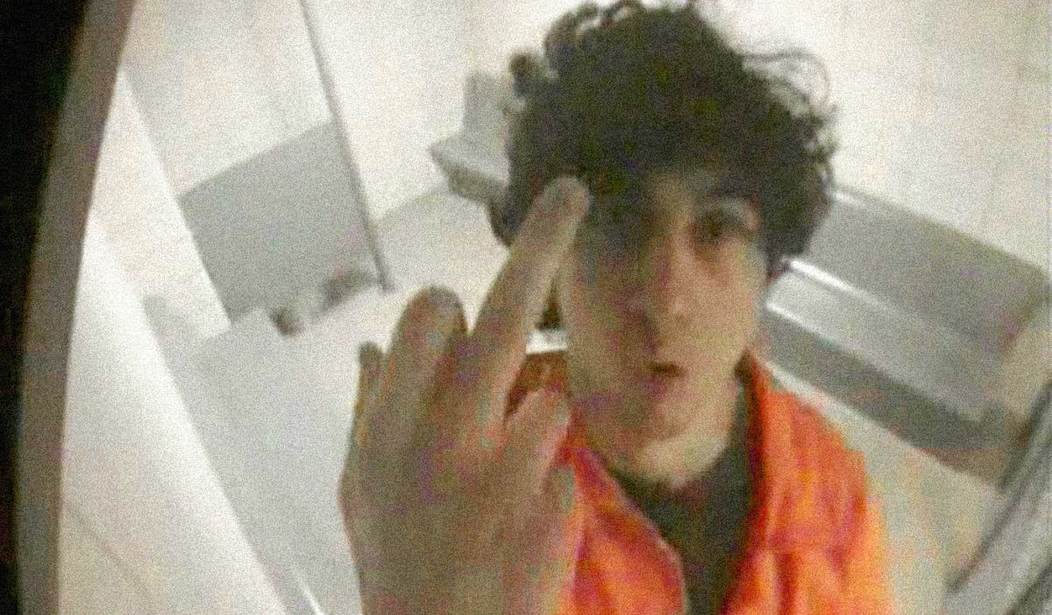Attorneys for the surviving brother of the pair that bombed the Boston Marathon on April 15, 2013, and later murdered a police officer, filed a motion with the First Circuit Court of Appeals yesterday claiming that the judge erred in the case by denying his motions to move the trial out of Boston. He is asking for his death sentence to be overturned.
The massive appeal brief raises a number of issues related to the trial of Dzhokhar Tsarnaev that ended in April 2015 — nearly two years after the bombing — with Tsarnaev being convicted on all 30 counts including conspiracy, use of a weapon of mass destruction, and the murder of the four victims.
The Associated Press reports:
In a 500-page brief filed in the 1st U.S. District Court of Appeals, Tsarnaev’s legal team outlined a host of other problems with his 2015 trial, during which the defense admitted from the outset that he and his older brother carried out the attack. His appellate lawyers are also pointing to issues with jurors, certain testimony from surviving victims and the defense’s inability to tell jurors about links between Tsarnaev’s brother and an unsolved triple killing in 2011.
His lawyers argue the trial court judge’s “first fundamental error” was denying the defense’s repeated requests to move the case out of a city that was “traumatized by the bombings, ordered to shelter in place during the manhunt, saturated by prejudicial publicity and united in the Boston Strong movement.”
“This case should not have been tried in Boston,” the attorneys wrote.
Among the other issues raised in the defense appeals brief are statements that two jurors made on social media. The brief also cited evidence related to the investigation and conviction of older brother Tamerlan Tsarnaev in the 2011 triple homicide of his three associates. His attorneys attempted to argue the theory that Dzhokhar was intimidated by Tamerlan and was possibly coerced into the bombing plot.
It’s important to note that Tsarnaev admitted his role in the bombing immediately following his arrest, telling investigators that he and his brother were motivated by extremist Islamist beliefs. He also said they learned how to make the pressure-cooker bombs from the online “Inspire” magazine published by al-Qaeda in the Arabian Peninsula (AQAP).
In fact, in the opening statement of defense attorney Judy Clarke in March 2015, she admitted his role in the terror attack:
There’s little that occurred the week of April the 15th — the bombings, the murder of Officer Collier, the carjacking, the shoot out in Watertown — that we dispute. If the only question was whether or not that was Jahar Tsarnaev in the video that you will see walking down Boylston Street, or if that was Jahar Tsarnaev who dropped the backpack on the ground, or if that was Jahar Tsarnaev in the boat — captured in the boat, it would be very easy for you: It was him.
Tsarnaev himself, when he spoke publicly for the first time after the bombing, admitted his guilt in the case right before he was sentenced by the judge:
Immediately after the bombing, which I am guilty of — if there’s any lingering doubt about that, let there be no more. I did do it along with my brother — I learned of some of the victims. I learned their names, their faces, their age. And throughout this trial more of those victims were given names, more of those victims had faces, and they had burdened souls […]
Now, I am sorry for the lives that I’ve taken, for the suffering that I’ve caused you, for the damage that I’ve done. Irreparable damage.
In their appeals brief, Tsarnaev’s attorneys say that the extensive coverage of the bombings and the victims killed and injured in the community directly targeted by the bombing would have had such an effect on the jury pool as to make it impossible for any juror to remain unbiased.
The attorneys cite one trial juror who posted twice on social media that she had to shelter in place while the manhunt was ongoing, and retweeted a post saying that Tsarnaev was a “piece of garbage.” These statements were presumably made before she was selected as a juror.
Another juror posted a “Boston Strong” graphic on her Facebook page the day of his sentencing.
The three murdered bombing victims were restaurant manager Krystle Marie Campbell, 29, Boston University graduate student Lingzi Lu, 23, and Martin Richard, 8. MIT police officer Sean Collier was killed three days later.
Boston Police officer Dennis Simmonds died in April 2014 from injuries sustained during a shootout with the Tsarnaevs during which Tamerlan was killed.
264 other victims were treated for injuries following the bombing, and 16 of those victims lost limbs.









Join the conversation as a VIP Member